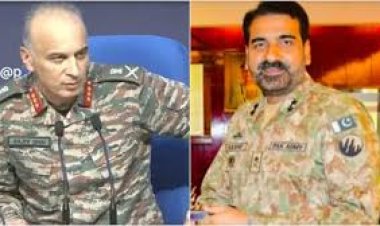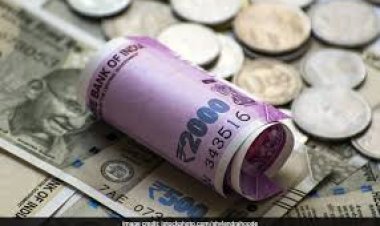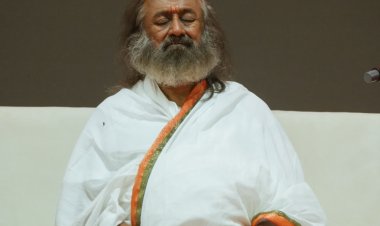VP Jagdeep Dhankhar Slams Supreme Court Over ‘Directive to President’ — Calls Article 142 a Judicial Nuclear Weapon
India’s Vice President terms Article 142 a “nuclear missile against democratic forces” amid rising concerns over judicial overr

Judiciary Overreach? Dhankhar Questions Supreme Court’s Authority to Issue Orders Against President
NEWS HIGHLIGHTS:
- Vice President Dhankhar criticizes Supreme Court for directing the President, calling it a dangerous constitutional precedent.
- Flags misuse of Article 142, likening it to a judicial "nuclear missile" against democratic institutions.
- Raises serious questions over judicial inaction in the cash-for-judgment controversy involving a sitting judge.
- Advocates strict separation of powers to protect democratic integrity.
- Calls for parliamentary oversight over judicial panels and criticizes unchecked judicial activism.

Dhankhar Raises Strong Objection to Supreme Court’s ‘Directive’ to President
Vice President Jagdeep Dhankhar has publicly criticized the Supreme Court of India for directing the President and Governors on legislative matters, calling the development a dangerous deviation from constitutional boundaries.
Addressing a high-level gathering, Dhankhar asserted that no democracy envisions a system where courts dictate terms to the head of state. “We cannot create a situation where the courts direct the President of India,” he stressed.
‘Article 142 Has Become a Judicial Nuclear Missile,’ Says Dhankhar
In a sharp critique of the judiciary’s expanding authority, Dhankhar described Article 142 — which grants the Supreme Court power to pass any decree necessary for complete justice — as a “nuclear missile against democratic forces,” available to the court around the clock.
He emphasized the need to restore constitutional boundaries between the judiciary, legislature, and executive, stating that the current trend threatens the core principles of democracy.
Judges Must Not Become Lawmakers or Super Parliament, Warns Vice President
Dhankhar also underlined a larger concern over judicial overreach, warning against a scenario where judges assume legislative and executive roles.
“India did not envision a democracy where judges will create laws, execute them, and function as a super parliament,” Dhankhar remarked, adding that this practice undermines the democratic mandate entrusted to elected representatives.
‘One Month, No FIR Against Judge in Cash Scandal’: VP Questions Delay

Raising eyebrows over an ongoing judicial controversy, Dhankhar questioned the lack of action in the case of a judge allegedly linked to a cash seizure.
“It’s been a month. There’s no FIR, and the matter is being investigated by a committee of three judges — is investigation the judiciary’s domain or the executive’s?” Dhankhar asked pointedly, highlighting the constitutional violation.
Constitutional Validity of Judicial Panels Under Scanner
Dhankhar also raised a constitutional question over the legitimacy of the three-judge committee investigating the cash recovery case.
“Is the committee sanctioned by Parliament or the Constitution? The answer is no. At best, it can make recommendations, but the final power rests with the Parliament, which has the authority to act against judges,” he said.
VP Questions Court's Directives to President Amid Judicial Activism Debate
The Vice President was vocal about the emerging imbalance in constitutional powers, cautioning against Supreme Court judgments that even override Presidential decisions while judicial inaction persists on serious allegations against judges.
“We are seeing a situation where a judge’s house has crores in cash, but there’s no action; meanwhile, orders are being passed against the President of India,” Dhankhar underlined, calling this a worrisome erosion of legal accountability.
‘CJI Must Not Be Given Veto Power’ — VP Advocates Checks on Judicial Supremacy
Dhankhar argued that no single office, including the Chief Justice of India, should be vested with unchecked authority.
“If all power rests with the Chief Justice, it will be dangerous. Our constitutional framework never permitted such concentration,” he warned.
Article 145(3) Misapplied? VP Seeks Legal Clarity
The Vice President also pointed out discrepancies in the Supreme Court's use of Article 145(3) — which mandates a Constitution Bench of at least five judges for interpretation cases.
"When the article was framed, the court had eight judges, meaning five was a clear majority. Today, with 30 judges, the interpretation of constitutional matters by just five is no longer sufficient or balanced," Dhankhar noted, calling for a review of this setup.

 BNH NETWORK
BNH NETWORK 










